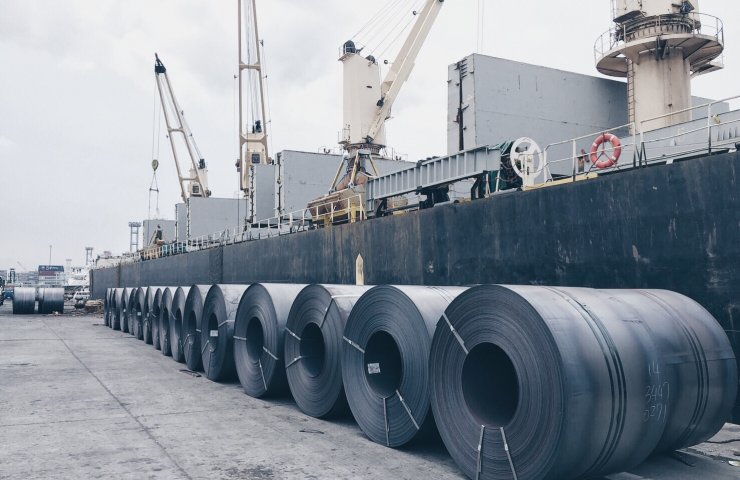Central bank governors and finance ministers have witnessed this week about worsening conditions for global trade. Gloomy forecasts were made by all analysts, from the International Monetary Fund to the World Bank.
Some have also noted how far away US foreign policy has become from the 1940s, when Washington co-founded the IMF. At the time, the global economy was plagued by high tariff barriers, depression and wars for more than a decade, prompting then US Treasury Secretary Henry Morgenthau to create a global economic system, World Bank President David Malpass said at a meeting this week.
The United States, the world's largest importer, launched a fierce tariff war with China, the world's largest exporter, 15 months ago. The IMF estimates this week that its impact will slow global growth in 2019 to 3.0%, the slowest pace in a decade.
Ukrainian exporters are faced with deteriorating conditions in world commodity markets, which led to a decrease in steel prices, said Kateryna Rozhkova, deputy head of the country's central bank. To make matters worse, “the intensification of geopolitical conflicts has led to an increase in world oil and natural gas prices,” she said.
Earlier it was reported that in nine months from the beginning of 2019 the value of Ukrainian exports of metallurgical products and metal products decreased by 10.4% to $ 6.88 billion.
The damage from the US-China trade war has been particularly noticeable in European countries that “rely on exports and are open to trade,” said European Union Commissioner for Economic and Financial Affairs Pierre Moskovichi.
More than 40% of Germany's GDP in 2018 came from exports. German Finance Minister Olaf Scholz told reporters about it. The BGA trading group recently revised its forecast for German exports in 2019 to grow to 0.5% from 1.5%. As a result, many companies are cutting back on their investment plans, with implications for years to come.
On Friday, the Japanese Cabinet of Ministers, which helps coordinate government policy, lowered its October industrial production estimate. The deterioration was largely attributable to a drop in car exports to the United States after strong growth in the spring, a government official said at a briefing.
"The acceleration of the growth of the world economy is postponed," said the head of the Bank of Japan Haruhiko Kuroda. "In the Japanese economy, exports are significantly weakening, which affects the output."
Washington's imposition of steel and aluminum tariffs and uncertainties over the new North American Free Trade Agreement - the US-Mexico-Canada Agreement - have also stalled local economic development.
Christopher Cabaldon, Mayor of West Sacramento, California, said the $ 100 million infrastructure project in the city was 80% higher than expected, in part due to the need for construction companies to account for higher costs and the risk of additional tariffs in the future.
Still, the United States remains the least vulnerable of the world's 20 largest economies to a drop in exports due in part to its huge base of domestic consumer spending.




